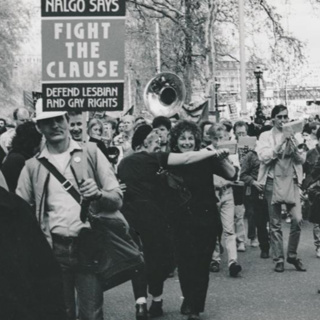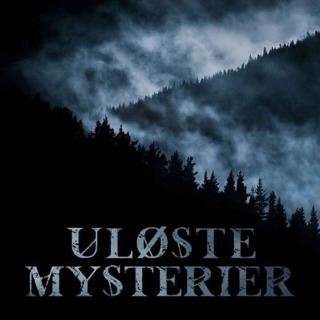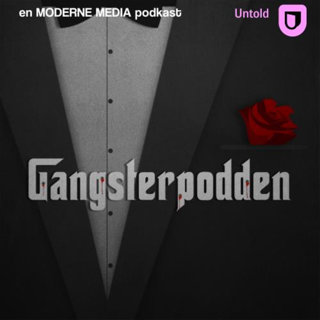
8. The Armada. And the body of a weak and feeble woman
Spain sent its Armada against Elizabethan England, and the expedition ended in disaster, though far more for its failures of planning and the lousy weather than for anything the English did. Meanwhile, Elizabeth I had a great time when she went down to inspect the militia at Tilbury. Can you imagine? The only woman among 4000 admiring solders. She loved it. And gave an iconic speech to mark the occasion. The illustration shows the Spanish Armada in crescent formation pursued up the Chanelle by the English fleet under Lord Howard of Effingham ©Patrick Guenette/123RF.COM Music: Bach Partita #2c by J Bu licensed under an Attribution-NonCommercial-NoDerivatives (aka Music Sharing) 3.0 International License
24 Des 20207min

7. Not Piracy
They may have been preying on ships, attacking them, stealing their cargoes and holding their crews to ransom, but they knew for sure that they weren't pirates. They were loyal English sailors in Queen Elizabeth I's service. After all, she was making money from their victories, and no Queen could possibly be profiting from piracy, could she? Well, the Spanish had no doubts. They were certainly pirates. And they were seriously annoying. Chapter 7 of A History of England is about the seamen of Elizabeth's reign and their exciting acts of derring do (or piracy). The illustration shows the captain of the Spanish galleon Our Lady of the Rosary surrenders to Sir Francis Drake of The Revenge ©petervick167/123RF.COM Music: Bach Partita #2c by J Bu licensed under an Attribution-NonCommercial-NoDerivatives (aka Music Sharing) 3.0 International License.
19 Des 20207min

6. God
You may have noticed that religion has been a pretty significant factor in the happenings of the first few chapters, as it will be in quite a few of the ones ahead. So it makes sense to pause a moment and take a look at the role of God in the evolution of England in the sixteenth and seventeenth centuries. Illustration: The ceiling fresco Glory of Holy Trinity in church Santuario del Santissimo Crocifisso by Gersam Turri (1927-1929). ©sedmak/123RF.COM Music: Bach Partita #2c by J Bu licensed under an Attribution-NonCommercial-NoDerivatives (aka Music Sharing) 3.0 International License.
14 Des 20209min

5. Good Queen Bess
An exciting moment! Anne Boleyn's daughter, bright as her mother, in sharpness of mind as well as redness of hair, has made it to the throne. She's sick of all those quarrels between Protestants and Catholics, and decides that there's no need to pick fights with any Catholic subject who's discreet about his beliefs and remains loyal to the throne. The trouble is that the Pope keeps making life difficult for her, by denying her legitimacy and therefore her right to the throne. Can she therefore count on Catholic subjects who owe allegiance to the Pope as well as to herself? And what about her cousin, Mary Queen of Scots? She's openly Catholic. And, with French connections herself, she's Queen in a nation that sees itself as close to England's enemy France. When she falls out with her own people and has to take refuge in England, how should Elizabeth react? Episode 5 will tell you. The illustration is a later engraving of her chief adviser William Cecil urging Elizabeth to take action against Mary Queen of Scots. ©petervick167/123RF.COM Music: Bach Partita #2c by J Bu licensed under an Attribution-NonCommercial-NoDerivatives (aka Music Sharing) 3.0 International License.
9 Des 202010min

4. Bloody Mary
A Bloody Mary may be a fine drink, but Bloody Mary was hardly the most desirable of Queens. As the nickname rather suggests. She was England's last Catholic monarch, and she set out to undo her brother's Protestant work (though without giving any of the money back). Apart from that, she lost England's last Continental possession, Calais, and she married the man who would become King Philip II of Spain. His great contribution as King of England? To sort out the Navy, a high-minded action but one unintended consequences for which he'd pay heavily later. The illustration is a portrait of Mary Tudor, who became Queen as Mary I, but is best known as Bloody Mary. © juangarcia/123RF.COM Music: Bach Partita #2c by J Bu licensed under an Attribution-NonCommercial-NoDerivatives (aka Music Sharing) 3.0 International License.
4 Des 20208min

3. A bit of a mess
At last, Henry VIII's wish could be fulfilled. He left the throne to his son. A male heir, just what he'd always wanted. Well, it wasn't that simple, First of all, Edward VI was only 9 when he came to the throne. Real power was exercised by a Regency Council that was - and this may shock you - not massively competent and rather more concerned with its own interests than with the nation's. What's more, Edward was England's first definitively Protestant monarch. A second shock for you will be to discover that a zealot for the oher side could be just much of a vandal as his enemies on the other. The illustration is a 19th century engraving of Edward VI, ©Georgios Kollidas/123RF.COM
29 Nov 20207min

2. The Wives of Henry VIII
We got to know Henry VIII a bit in chapter 1. We also talked a little about his wives, and it seems only right that we think about them a bit more now, especially since having a lot of wives is what Henry's best known for. So chapter 2 takes a look at their stories, at why Henry married them (well, the other reasons, apart from his attraction to young women), and to what extent he hit his objective. And, to surprise and amuse us all, we end with an unusual example of foresight and enlightened thinking from a monarch generally better known for self-serving authoritarianism. The picture is a detail of a British stamp showing the face of Catherine Howard, the wife who was rather too free with her charms for the taste of of her husband. ©Andy Lidstone/123RF.COM Music: Bach Partita #2c by J Bu licensed under an Attribution-NonCommercial-NoDerivatives (aka Music Sharing) 3.0 International License.
24 Nov 202013min

A History of England (Trailer)
21 Nov 202036s





















